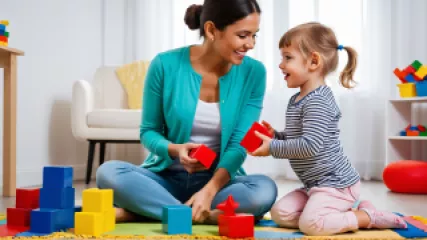The Benefits of Parent-Child Therapy Sessions in Play Therapy
Parent-child therapy sessions in play therapy provide a unique and valuable opportunity for both parents and children to engage in therapeutic activities together. This approach not only promotes emotional healing and growth for the child but also strengthens the parent-child relationship. In this opinion piece, we will explore the benefits of parent-child therapy sessions in play therapy and why they are a powerful tool in supporting children's mental health.
The Power of Play Therapy
Play therapy is a form of counseling that utilizes play as a means of communication and expression for children. Through play, children can process their emotions, explore their experiences, and develop coping strategies. Play therapy creates a safe and supportive environment for children to express themselves non-verbally and work through challenges they may be facing.
Traditionally, play therapy sessions involve the child and the therapist. However, incorporating parent-child therapy sessions into play therapy can enhance the therapeutic process and provide additional benefits for both parents and children.
Enhancing the Parent-Child Relationship
Parent-child therapy sessions in play therapy offer a unique opportunity for parents to actively participate in their child's therapeutic journey. By engaging in play activities together, parents can gain insight into their child's world, strengthen the bond with their child, and learn new ways to support their child's emotional well-being.
When parents actively participate in play therapy sessions, they demonstrate their commitment to their child's healing process. This involvement fosters trust and increases the child's sense of security, knowing that their parent is there to support them. The collaborative nature of parent-child therapy sessions also empowers parents to become more effective caregivers.
Building Emotional Regulation Skills
One of the primary goals of play therapy is to help children develop emotional regulation skills. By engaging in play activities with their child, parents can model and teach these skills in a supportive and nurturing environment.
During parent-child therapy sessions, parents can observe and understand their child's emotional states and provide appropriate guidance and support. They can help their child identify and label emotions, explore healthy coping mechanisms, and problem-solve challenging situations. Through this process, children learn valuable emotional regulation skills that they can apply in their daily lives.
Creating a Bridge to the Home Environment
Parent-child therapy sessions in play therapy create a bridge between the therapeutic setting and the child's home environment. By involving parents in the therapy process, the strategies and techniques learned during sessions can be carried over into the child's everyday life.
Parents can gain insights into their child's specific needs and challenges and learn how to adapt the therapeutic play activities for home use. This continuity of care helps children generalize the skills they learn in therapy and apply them in real-life situations.
Strengthening Parenting Skills
Parent-child therapy sessions provide an opportunity for parents to develop and enhance their parenting skills. By actively participating in play activities with their child, parents can learn new ways to connect, communicate, and support their child effectively.
Therapists can offer guidance and feedback during parent-child therapy sessions, helping parents develop positive parenting strategies. Parents can also learn how to set appropriate boundaries, establish routines, and create a nurturing and supportive home environment that promotes their child's emotional well-being. These skills have long-term benefits beyond the therapy sessions and contribute to the overall growth and development of the child.
Conclusion
Parent-child therapy sessions in play therapy are a valuable and effective approach to supporting children's mental health. By involving parents in the therapeutic process, these sessions strengthen the parent-child relationship, build emotional regulation skills, create a bridge to the home environment, and enhance parenting skills.
Through collaborative play activities, parents and children can work together towards healing and growth. The benefits of parent-child therapy sessions extend beyond the therapy room, providing lasting positive effects on the child's well-being and the overall dynamics of the family.






